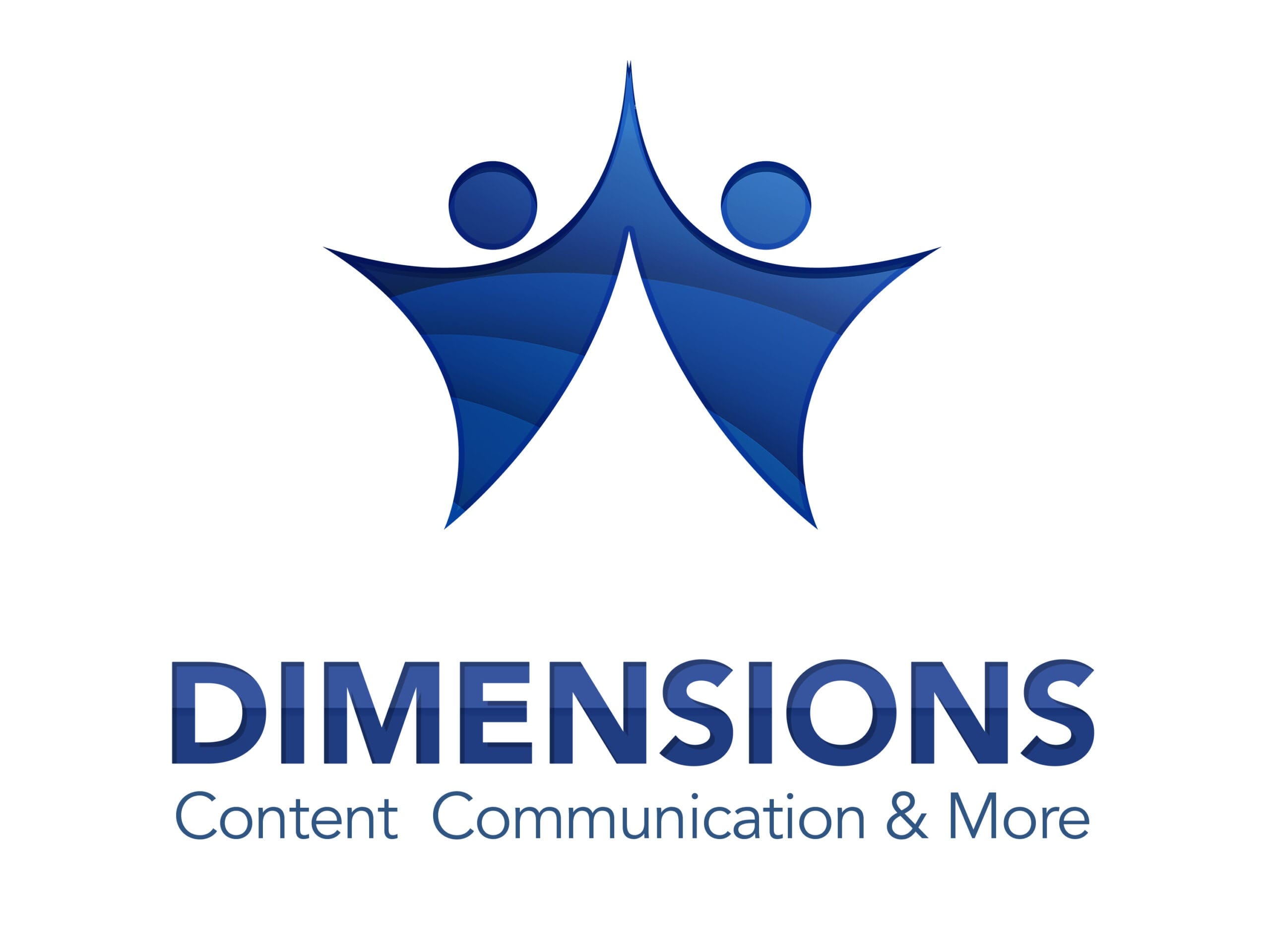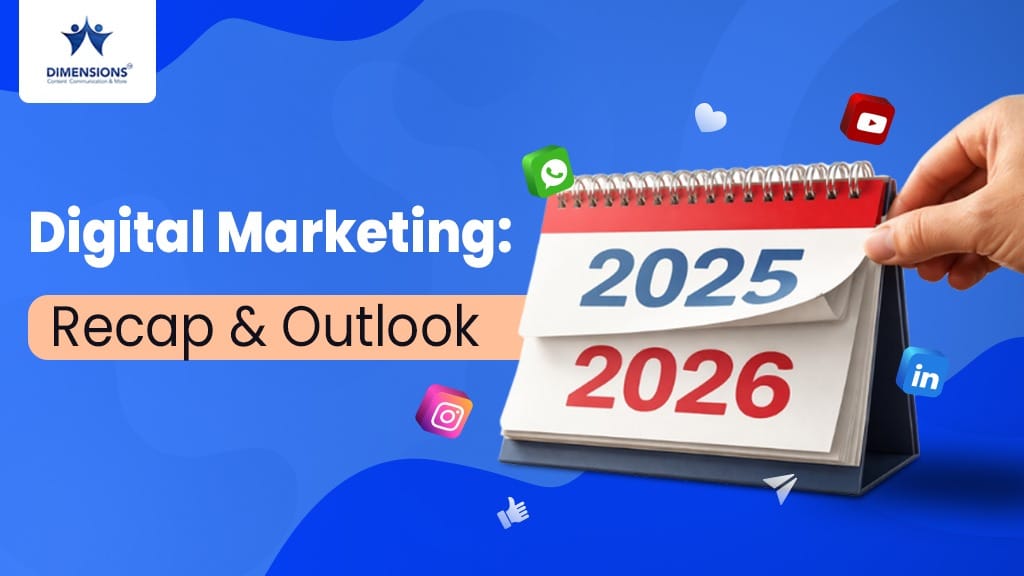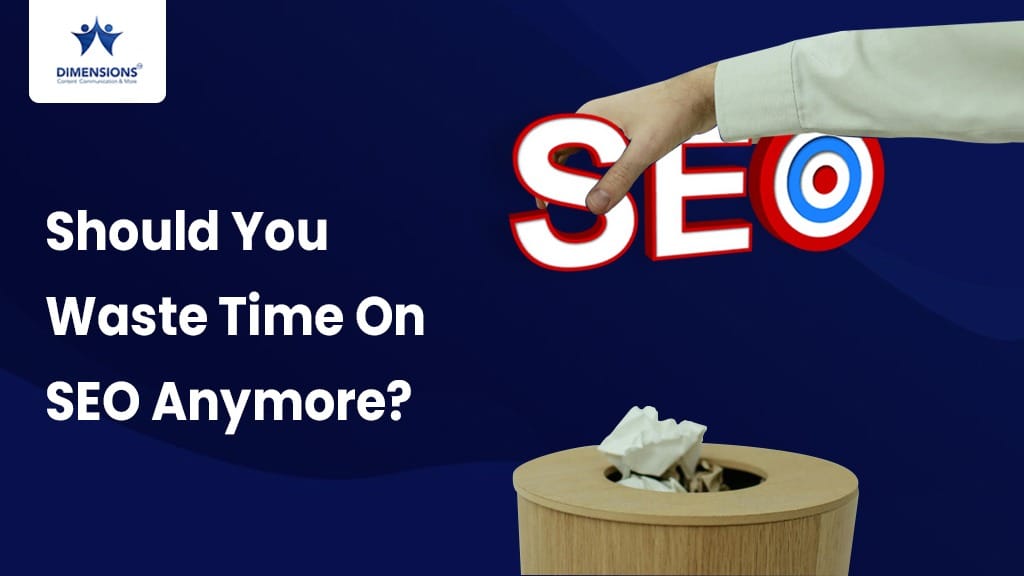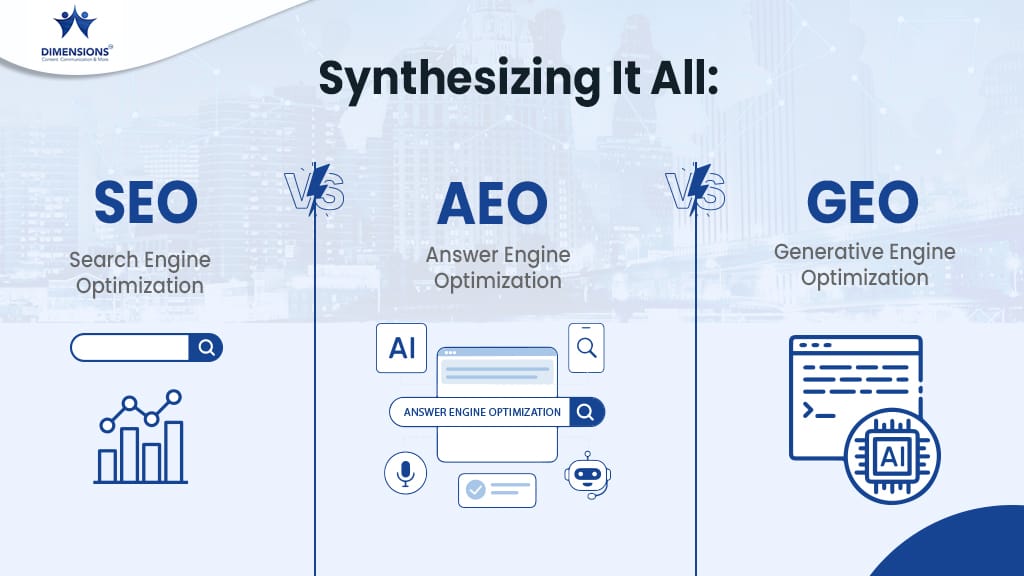Generative Artificial Intelligence tools like Chat-GPT and DALL-E are the new revolution in digital marketing and online content creation. They have taken the world by storm with their lightning-fast speeds, human-like interactivity, and superior resources. Now someone with no writing or artistic experience can create very high-quality essays, paintings, graphics, and videos. Barriers to entry in the online content industry have dropped to almost zero.
While this has captured the world’s imagination, there is also a lot of speculation on the impact this will have on our society. Questions of creativity, legality, inequality, jobs and ethics have started growing, and the industry is trying to adapt.
These questions will only grow more pertinent with AI becoming a bigger part of the industry, as the market value of AI has already climbed from $12 billion in 2020 to $27 billion in 2023 and is projected to cross $100 billion by 2030. In this blog, we will look at some of the effects of generative AI on the digital marketing industry and analyse the positive and negative effects.
Marketing on a Global Scale
AI makes it easier to scale marketing campaigns and reach a larger audience. By automating many tasks, marketers can manage larger volumes of data and customer interactions. AI algorithms can also analyse large volumes of data to identify patterns and insights humans may miss. This can lead to better optimisation of marketing campaigns, such as identifying the most effective channels or adjusting messaging based on real-time feedback.
By automating and optimising marketing activities, AI can help reduce costs and increase ROI. This can be especially beneficial for smaller businesses that may not have the resources for extensive marketing campaigns. Generative AI also has a big use case in helping marketers combat creative fatigue. A digital marketer who works in a given field daily may quickly find himself out of ideas, and here AI can help improve productivity.
On the other hand, there might also be a drag on small businesses, as AI is a complex technology, and implementing it in digital marketing can require significant resources and expertise. This can be a barrier for smaller businesses or those without a dedicated data team.
The Age of Individual Marketing
The internet has already led to the rise of microtargeting, where ads target extremely specific demographic groups. However, with AI, we are now at the dawn of individual ads, where content can be optimised on an unprecedented level, as AI can tailor ads to suit each individual person’s tastes and interests. A marketer can now feed in the broad details and let AI optimise content for everyone.
This applies to web content and after-sales support, such as service chatbots and training software. AI can help digital marketers personalise their customer interactions by analysing data on their behaviour and preferences. This can lead to more effective targeting, messaging, and, ultimately, better customer experiences. Digital marketers can feed in broad guidelines and let AI follow those to create ads for each individual person.
However, the danger here is that as AI gathers more customer data, there will be concerns about how that data is used and whether customers’ privacy is respected. Marketers need to be transparent about their use of AI and take steps to protect customer data.
Automation of Low Value-Added Jobs
Perhaps the most significant advantage of generative AI is a significant saving in time and human effort, as they help to cut back on busywork. Time spent on rote tasks is reduced massively, as these tools can take over mundane tasks like proofreading, editing and search engine optimisation.
AI in Digital Marketing can also automate time-consuming and repetitive tasks like ad targeting, email campaigns, and social media posting. This can save marketers time and resources, allowing them to focus on more strategic activities. Not just productivity, it also improves worker interest by removing a lot of mundanities from their jobs, letting them focus on high-level and exciting tasks.
The risk of job security becomes apparent here, as many people in the digital marketing industry will find their careers at risk, especially those less adaptable. What happens to jobs if AI can write content, create graphics, and do automatic market research? Suppose generative AI leads to a 100x improvement in productivity. In that case, that might mean a 100x reduction in jobs, and perpetuate inequality, as the lower-value jobs are the ones that are most at risk. This job insecurity might generate a backlash against generative AI altogether.
AI In Digital Marketing and The Problem of Vox Populi, Vox Dei
Another major threat to watch out for is the ‘Vox Populi Vox Dei’ phenomenon. Because generative AI tools like Chat-GPT draw information from the internet at large without being able to evaluate the truth of said information, there is a big risk of popular talking points being amplified and incorporated into AI-generated content regardless of its veracity.
AI algorithms are only as good as the data they are trained on, and if that data contains biases, AI can perpetuate and amplify them. This can lead to discriminatory outcomes in ad targeting or customer profiling.
For example, if a large amount of online content and discourse claims that the earth is flat, there is a chance that AI might draw on that information and also end up claiming that the earth is flat in its generated content. This is because AI cannot judge whether a fact is true by going by what many online sources are saying.
This phenomenon creates both risks and opportunities. Risks because there is a huge danger of harmful and disruptive content being amplified, such as conspiracy claims, hateful stereotypes or false statistics. If this may seem too far-fetched, remember that such events have already occurred. For example, ‘Tay’, a Microsoft-created AI chatbot, had to be shut down because its non-critical trawling of internet discourse led to it creating some extremely offensive and hateful content.
However, there is also an opportunity which derives from this. Since we can all agree that generative AI isn’t going anywhere, significant efforts must be made to ensure that AI-generated content is reliable and appropriate. This will, initially, require a large amount of human moderation. This could become a new niche for digital marketers, where they moderate and curate content instead of creating content. As an analogy, digital marketers would shift to being more like newspaper editors or museum curators than reporters or painters.
Content Could Become More Artificial
One of the key disadvantages of using AI in digital marketing is that it can lack the human touch often needed to build genuine customer relationships. AI can automate many processes but cannot replace the importance of human-to-human interaction. AI can be very data-driven, but this can also be a disadvantage. Marketers who rely too heavily on AI-generated insights may overlook important nuances and miss opportunities for creative solutions.
AI-generated content might also mean a homogenisation of content, as similar algorithms trawling similar sources for similar purposes will also create very similar content. This might lead to a monoculture of online content, where everything looks very similar and is hard to differentiate.
A New Gutenberg Galaxy
In many ways, the onset of Generative AI can be compared to previous revolutions in media and communications. The invention and spread of the printing press in mediaeval times also led to similar complaints that scribes and bookbinders would go out of business, that the new medium was impersonal and artificial, and that it would lead to a proliferation of low-quality content. Instead, the printing press led to an explosion of new genres, creating jobs such as journalists, typesetters, and novelists, which were impossible before. The lower cost of content creation caused an unprecedented spread of information, making science and culture accessible to the poor for the first time.
Similar revolutions happened with the onset of television and the internet. The birth of generative AI will cause a lot of disruption, but the eventual benefits will outweigh the temporary upheaval. New forms of content will be created that were impossible before, and reducing labour will allow more people to flex their creative muscles. Importance will shift to imagination and creativity as ideas become more important than content.
Similarly, there will also be an expansion in accessibility as generative AI removes barriers like language. A lot of content is only created in English today, as it is cost prohibitive to find and train workers in less widespread languages. That will probably change, as with generative AI, people can easily conceptualise content in one language and let the AI generate content in another. The lowered labour costs will also make online content accessible to more people, and eliminating paywalls means more eyeballs which means more demand for ads.
Ultimately, AI Will Transform Jobs, Not Destroy Them
To gauge the impact of AI on the digital marketing industry, we can take the example of chess. Many people predicted the end of the game after AI became advanced enough to easily beat any human player.
However, this did not happen, as the market merely shifted to human-centric games, and AI was relegated to areas like training and move optimisation. Far from making the game obsolete, chess AI has led to a renaissance, with players becoming much better through AI training and creative strategies that were unimaginable a decade ago being used.
The impact on the digital marketing sector will probably be similar, as instead of replacing people, it helps people to up their game and create a new paradigm. Ultimately while AI resources are massive, human imagination is infinite, and we will find new and innovative ways of using this tool to improve the quality of online content.





